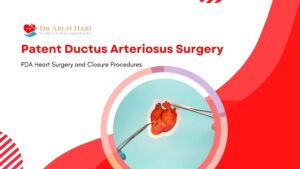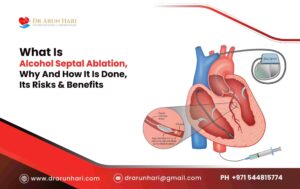Differentiating between Interventional Cardiology and Cardiothoracic Surgery
Interventional Cardiology Specialities
Tests Ordered in Interventional Cardiology
Interventional Cardiology Procedures
Interventional Cardiology Overview
What is interventional cardiology? It is a specialized branch of cardiology focusing on catheter-based heart treatment procedures to manage and treat cardiovascular diseases effectively. For a more detailed overview, see our article on Interventional Cardiology Overview. It involves the use of catheters (thin tubes) and other medical devices to access the heart & blood vessels, allowing interventional cardiologists to perform diagnostic tests & therapeutic interventions.
Differentiating between Interventional Cardiology and Cardiothoracic Surgery
In comparison to cardiothoracic surgery, interventional cardiology focuses on nonsurgical, catheter-based procedures. Understand the difference between a cardiologist and an interventional cardiologist by exploring diagnostic comparisons between interventional cardiology and cardiothoracic surgery Interventional Cardiology vs Cardiothoracic Surgery. while cardiothoracic surgery involves surgical interventions on the heart & thoracic (chest) cavity. Interventional cardiology is less invasive and generally associated with shorter hospital stays and faster recovery times compared to cardiothoracic surgery.
Interventional Cardiology Specialities
Specialized cardiac care in interventional cardiology focuses on diagnosing and treating heart and blood vessel conditions using advanced non-surgical heart treatment techniques. They have extensive knowledge & experience in specializing in cardiac catheterization, angioplasty, and stent placement.
Diagnostic tests and catheter-based heart procedures
Some of the tests that an interventional cardiologist may perform, or order include the following:
- Cardiac catheterization: Catheter procedures, such as cardiac catheterization, involve inserting a thin tube into a blood vessel to diagnose and treat heart disease by evaluating the heart’s structure and function.
- Coronary angiography: angioplasty and stenting Coronary angiography, a type of catheter-based treatment, uses a contrast dye to identify blockages in coronary arteries, aiding in the management of coronary artery disease.
- Intravascular ultrasound (IVUS): This test uses a tiny ultrasound probe attached to a catheter to obtain detailed images of the inside of the blood vessels.
- tests used for heart disease diagnosis and treatment: It measure blood pressure and flow in specific coronary arteries to determine if a blockage is causing reduced blood flow.
Interventional Cardiology Procedures
These procedures include the ones given as under:
- Catheter-based vascular therapy: Catheter-based vascular therapy, such as angioplasty, uses a balloon-tipped catheter to restore blood flow in blocked coronary arteries, often accompanied by coronary artery stenting. The balloon is then inflated to widen the artery and restore blood flow. In many cases, a stent (a small mesh tube) is also placed to keep the artery open.
- Coronary artery stenting: It involves placing a stent in a narrowed or blocked coronary artery to improve blood flow to the heart muscle.
- Transcatheter aortic valve replacement (TAVR): This procedure is used to replace a narrowed aortic valve without open-heart surgery. A catheter is used to implant a new valve, which is expanded and positioned within the diseased valve.
- Structural heart interventions: Structural heart diseases, such as atrial septal defect closure and transcatheter mitral valve repair, are treated through advanced interventional cardiology procedures. such as atrial septal defect closure, patent foramen ovale closure, or transcatheter mitral valve repair.
Common Procedure Performed in Interventional Cardiology
The most common procedure performed in interventional cardiology is percutaneous coronary intervention (PCI), which includes angioplasty & stenting. It is used to treat coronary artery disease, relieve angina (chest pain), and restore blood flow to the heart.
Heart and blood vessel conditions treated by interventional cardiologists
Interventional cardiologists specialize in diagnosing and treating heart and blood vessel conditions, including coronary artery disease, congenital heart defects, and peripheral artery disease.
- Coronary artery disease
- Heart valve disorders
- Congenital heart defects
- Peripheral artery disease
- Certain types of heart failure
Doctor Arun Is a Sincere Interventional Cardiologist
So, once you have understood interventional cardiology meaning, it is important to note that the specific practice setting can vary depending on the healthcare system and country. get in touch with the best interventional cardiologist, Doctor Arun, is a sincere interventional cardiologist offering expertise in diagnosing and treating structural heart diseases and coronary artery disease. Schedule an appointment with his team for specialized cardiac care.





